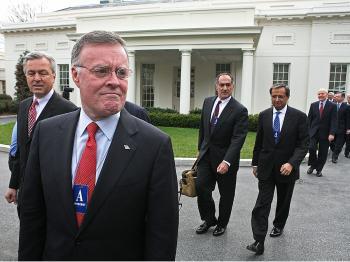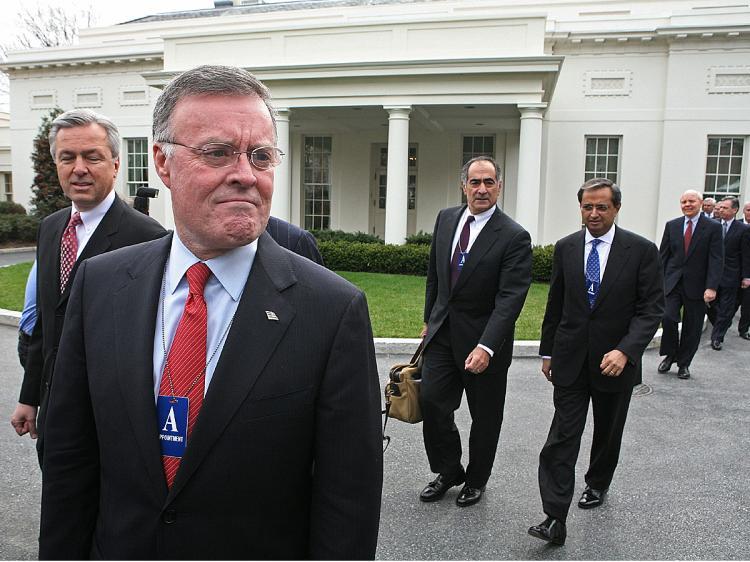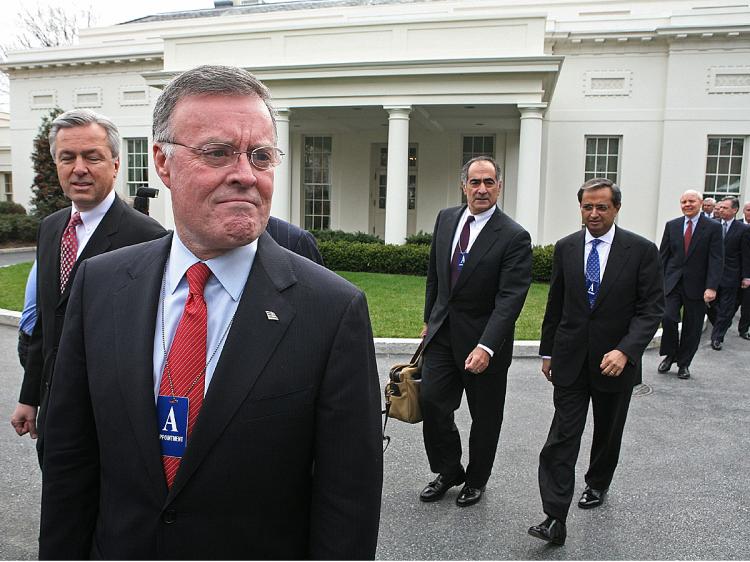The mounting discontent about Bank of America Corp. Chief Executive Officer Kenneth D. Lewis has taken its toll, with his resignation to take place at end of 2009, according to a statement from the Bank of America on Wednesday.
This statement comes after months of Bank of America being dogged by a series of government investigations into the company’s acquisition of Merrill Lynch & Co. last year that had become a major distraction for the biggest U.S. bank.
Bank of America is the biggest U.S. lender by assets and deposits and has not announced its new successor. Lewis will retire as director, the bank said. Lewis’s resignation will end a 40-year career at the Charlotte, N.C.-based company, the last eight of which as its CEO. According to William Patterson from CtW Investment Group, “Ken Lewis’s resignation as CEO is overdue but inevitable.”
Lewis commented that “Bank of America is well positioned to meet the continuing challenges of the economy and markets. I am particularly heartened by the results that are emerging from the decisions and initiatives of the difficult past year and a half,” according to Reuters.
“The Merrill Lynch and Countrywide integrations are on track and returning value already,” Lewis said in a Reuters interview.
“Our board of directors and our senior management include more talent, and more diversity of talent, than at any time in this company’s history. We are in position to begin to repay the federal government’s TARP investments. For these reasons, I decided now is the time to begin to transition to the next generation of leadership at Bank of America.”
According to Bloomberg, Lewis, 62, oversaw more than $130 billion in acquisitions during his time as CEO, including the takeover of Merrill Lynch in January. Lewis completed that deal only after Federal Reserve Chairman Ben S. Bernanke and former Treasury Secretary Hank Paulson rebuffed his effort to pull out, leading to probes of the deal by Congress, the Securities and Exchange Commission, and New York’s attorney general.
Bank of America shares, which have shed 50 percent since the Merrill Lynch deal was announced on Sept. 15, 2008, the same day Lehman Brothers declared bankruptcy, were up 2 percent in afterhours trading.
Lewis’s planned retirement could raise new questions about the staying power of Citigroup Inc. Chief Executive Vikram Pandit, who, like Lewis, has been under pressure from regulators after his bank received a massive taxpayer bailout.
This statement comes after months of Bank of America being dogged by a series of government investigations into the company’s acquisition of Merrill Lynch & Co. last year that had become a major distraction for the biggest U.S. bank.
Bank of America is the biggest U.S. lender by assets and deposits and has not announced its new successor. Lewis will retire as director, the bank said. Lewis’s resignation will end a 40-year career at the Charlotte, N.C.-based company, the last eight of which as its CEO. According to William Patterson from CtW Investment Group, “Ken Lewis’s resignation as CEO is overdue but inevitable.”
Lewis commented that “Bank of America is well positioned to meet the continuing challenges of the economy and markets. I am particularly heartened by the results that are emerging from the decisions and initiatives of the difficult past year and a half,” according to Reuters.
“The Merrill Lynch and Countrywide integrations are on track and returning value already,” Lewis said in a Reuters interview.
“Our board of directors and our senior management include more talent, and more diversity of talent, than at any time in this company’s history. We are in position to begin to repay the federal government’s TARP investments. For these reasons, I decided now is the time to begin to transition to the next generation of leadership at Bank of America.”
According to Bloomberg, Lewis, 62, oversaw more than $130 billion in acquisitions during his time as CEO, including the takeover of Merrill Lynch in January. Lewis completed that deal only after Federal Reserve Chairman Ben S. Bernanke and former Treasury Secretary Hank Paulson rebuffed his effort to pull out, leading to probes of the deal by Congress, the Securities and Exchange Commission, and New York’s attorney general.
Bank of America shares, which have shed 50 percent since the Merrill Lynch deal was announced on Sept. 15, 2008, the same day Lehman Brothers declared bankruptcy, were up 2 percent in afterhours trading.
Lewis’s planned retirement could raise new questions about the staying power of Citigroup Inc. Chief Executive Vikram Pandit, who, like Lewis, has been under pressure from regulators after his bank received a massive taxpayer bailout.





